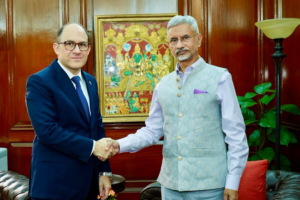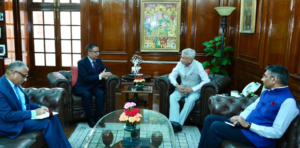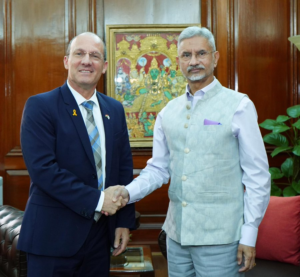Delayed start to fourth day of Gyanvapi survey due to rush of devotees at Kashi Vishawanath temple
Varanasi (UP), Aug 8 (PTI) The ASI survey of the Gyanvapi mosque was delayed briefly on Monday due to a heavy rush of devotees at the adjacent Kashi Vishwanath temple.
Mondays in the month of ‘sawan’ hold great significance for devotees, who queue up at temples to offer prayers to Lord Shiva.
As a crowd of devotees gathered at the Kashi Vishwanath temple, the survey started three hours late at 11 am and continued till 5 pm. Monday was the fourth day of the exercise being carried out by the Archaeological Survey of India (ASI) on court directives.
Some members of the Anjuman Intezamia Mosque Committee, which manages the Gyanvapi mosque, and the local imam were present during the survey.
The survey will resume at 8 am on Tuesday, government advocate Rajesh Mishra said.
Measuring, mapping and photography of the entire complex is being done, he said.
The ASI expressed strong displeasure over rumours being circulated about the ongoing work and asked the administration to check this, Mishra said.
On Sunday, the Muslim side had alleged that “rumours” were being spread that a Hindu idol and a trident were found during the survey. They had also demanded the administration put a stop to such “rumours”.
Vishnu Shankar Jain, the Hindu side’s advocate, said the ASI is surveying the entire complex by dividing its 42-member team into smaller groups.
“It would be wrong to think that something new will be discovered every day as a detailed scientific study of the structure and architecture of the complex is being done. We will know the findings only after the report of the survey team comes,” he said.
The Supreme Court had on Friday refused to stay an Allahabad High Court order that allowed the ASI survey of the Gyanvapi mosque, an exercise that the Muslim side said would “reopen wounds of the past”.
The bench of Chief Justice D Y Chandrachud and Justices J B Pardiwala and Manoj Misra, however, asked the ASI not to carry out any digging during the survey.






